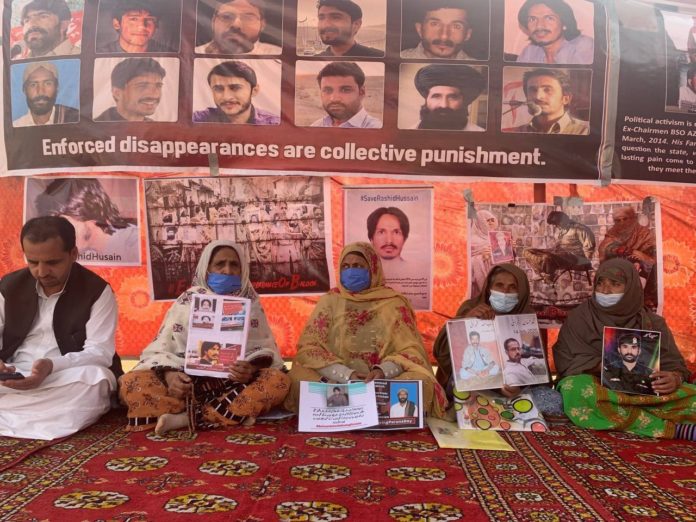Quetta: People of Pakistan-occupied Balochistan continue to suffer the torment of ‘Enforced Disappearances’, which is an inhuman practice of the Pakistani security agencies who illegally pick up people of Balochistan and the victim is never seen again.
The loved ones of the victims keep waiting or knocking at the doors of the authorities, even the judiciary but the victims are not found, either alive or dead.
According to estimates, thousands of Baloch people remain missing after being abducted by the Pakistani security agencies several years back.
The number keeps increasing every month.
For instance, in April, that is last month, at least 37 individuals became victims of Enforced Disappearances while 2 were killed in fake encounters, according to a report issued by Baloch National Movement (BNM).
At the same time, 21 victims of enforced disappearances were released, says the report compiled by Paank, the Human Rights Department of Baloch National Movement.
The report, released today, highlights instances of extrajudicial killings and forced disappearances, revealing concerning trends in Balochistan.
It gave instances of kidnappings and extra-judicial killings of Baloch people by the Pakistani security agencies.
Giving a break up, the report said 3 individuals were forcibly disappeared from Shaal district, 8 from Kech, 12 from Awaran, 1 from Kohlu, 4 from Gwadar, 1 from Dera Bugti, 2 from Khuzdar, 1 from Kharan, 3 from Hub, and 2 from Chagai district.
The report stated that Pakistan’s courts are showing a lack of seriousness, which is turning into more despair the already weak hope of enforced disappearances.
The judicial system of any state plays a vital role in ensuring that rulers and authorities adhere to constitutional and legal boundaries.
Effective court proceedings significantly reduce citizen anxiety and safeguard their rights.
However, Pakistan faces challenges in maintaining judicial independence, with courts openly acknowledging their lack thereof.
Paank has underscored that it is imperative for United Nations human rights organizations to intensify their involvement and urge influential nations to exert pressure on Pakistan concerning enforced disappearances.
Given that Pakistan is a member state of the UN, this widespread violation of human rights should not be overlooked or taken lightly.
The UN unequivocally defines enforced disappearance as not merely an individual or familial matter, but as a crime against humanity.
Regrettably, the United Nations, along with international leadership and human rights institutions, have failed to halt the prolonged occurrence of forced disappearances spanning over the past two decades.
This failure severely undermines the confidence of the Baloch people in these institutions.








